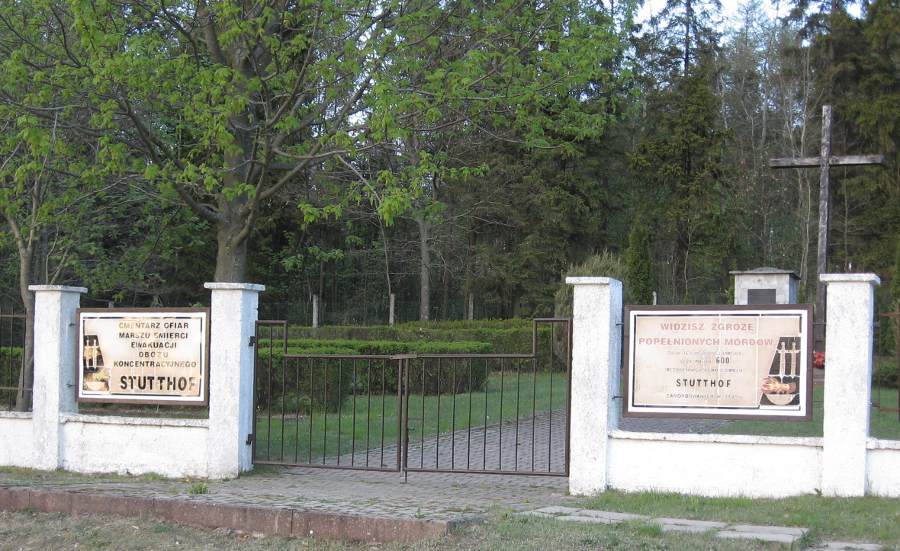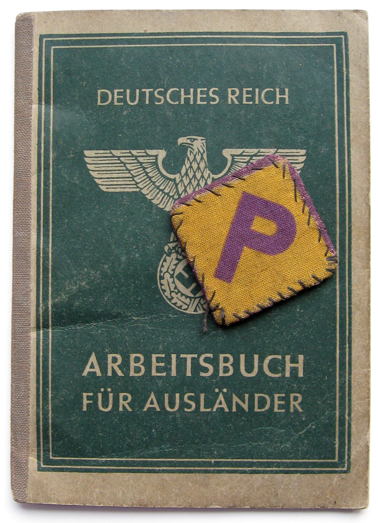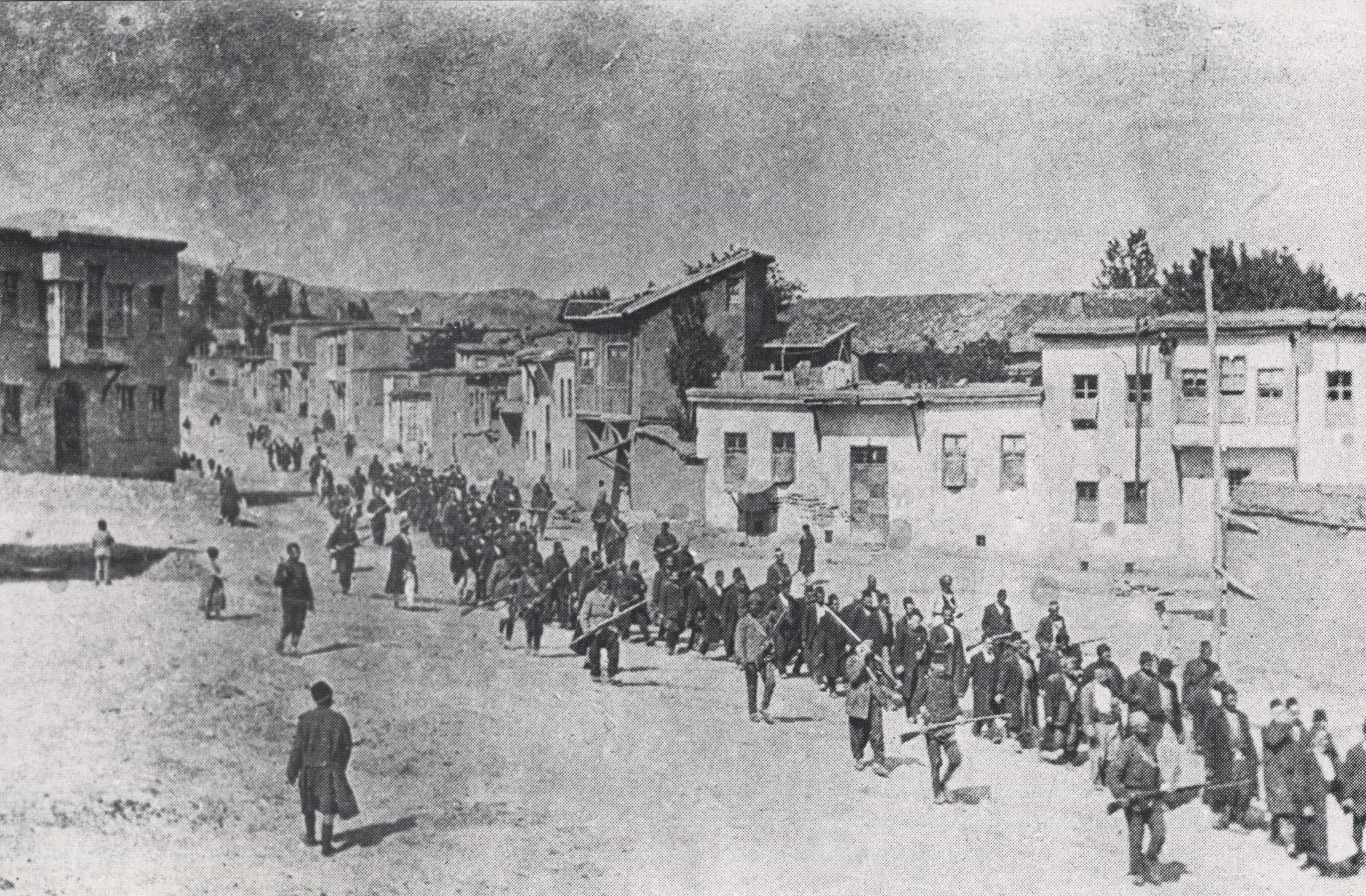|
Nawitz
Nawitz is the German name of the town of Nawcz in northern Poland. During the occupation of Poland by the Third Reich in World War II the forced-labour camp Nawitz was set up as one of 40 subcamps of the notorious Nazi German Stutthof concentration camp near Gdańsk (totalling more than 85,000 victims before liberation).Tenhumberg Nawitz (Nawcz)Außenlager des Konzentrationslagers Stutthof. 2008 Tenhumbergreinhard.de (Düsseldorf).Zachor2014 We Remember (with collection of photographs). The cemetery of prisoner victims of ''Auffanglager'' Nawitz along with those of Stutthof who perished during the final death march A death march is a forced march of prisoners of war or other captives or deportees in which individuals are left to die along the way. It is distinguished in this way from simple prisoner transport via foot march. Article 19 of the Geneva Convent ... westward is located in the town. Notes and references {{coord missing, Pomeranian Voivodeship Nazi concentration ... [...More Info...] [...Related Items...] OR: [Wikipedia] [Google] [Baidu] |
Nawcz
Nawcz ( csb, Nôwcz, german: Nawitz) is a village in the administrative district of Gmina Łęczyce, within Wejherowo County, Pomeranian Voivodeship, in northern Poland. It lies approximately south-east of Łęczyce, south-west of Wejherowo, and west of the regional capital Gdańsk. The village has a population of 252. For details of the history of the region, see ''History of Pomerania''. ''Auffanglager'' Nawitz During the occupation of Poland by the Third Reich in World War II, the village was the location of the forced-labour camp Nawitz, set up as one of 40 subcamps of the notorious Nazi German Stutthof concentration camp near Gdańsk Gdańsk ( , also ; ; csb, Gduńsk;Stefan Ramułt, ''Słownik języka pomorskiego, czyli kaszubskiego'', Kraków 1893, Gdańsk 2003, ISBN 83-87408-64-6. , Johann Georg Theodor Grässe, ''Orbis latinus oder Verzeichniss der lateinischen Benen ....Tenhumberg Nawitz (Nawcz)Außenlager des Konzentrationslagers Stutthof. 2008 Tenhumberg ... [...More Info...] [...Related Items...] OR: [Wikipedia] [Google] [Baidu] |
Stutthof Concentration Camp
Stutthof was a Nazi concentration camp established by Nazi Germany in a secluded, marshy, and wooded area near the village of Stutthof (now Sztutowo) 34 km (21 mi) east of the city of Danzig (Gdańsk) in the territory of the German-annexed Free City of Danzig. The camp was set up around existing structures after the invasion of Poland in World War II and initially used for the imprisonment of Polish leaders and intelligentsia. The actual barracks were built the following year by prisoners. Most of the infrastructure of the concentration camp was either destroyed or dismantled shortly after the war. In 1962, the former concentration camp with its remaining structures, was turned into a memorial museum. Stutthof was the first German concentration camp set up outside German borders in World War II, in operation from 2 September 1939. It was also the last camp liberated by the Allies, on 9 May 1945. It is estimated that between 63,000 and 65,000 prisoners of Stuttho ... [...More Info...] [...Related Items...] OR: [Wikipedia] [Google] [Baidu] |
Occupation Of Poland
Occupation commonly refers to: *Occupation (human activity), or job, one's role in society, often a regular activity performed for payment *Occupation (protest), political demonstration by holding public or symbolic spaces *Military occupation, the martial control of a territory *Occupancy, use of a building Occupation or The Occupation may also refer to: Arts and entertainment * ''Occupation'' (2018 film), an Australian film *Occupation (2021 film), a Czech comedy drama film * ''Occupation'' (TV series), a 2009 British drama about the Iraq War * "Occupation" (''Battlestar Galactica''), a 2006 television episode * "The Occupation" (''Star Wars Rebels''), a 2017 television episode *''The Occupation'', a 2019 video game *''The Occupation'', a 2019 novel by Deborah Swift See also *Career, a course through life *Employment, a relationship wherein a person serves of another by hire *Job (other) *Occupy (other) *Position (other) *Profession, a vocation *Stand ... [...More Info...] [...Related Items...] OR: [Wikipedia] [Google] [Baidu] |
Third Reich
Nazi Germany (lit. "National Socialist State"), ' (lit. "Nazi State") for short; also ' (lit. "National Socialist Germany") (officially known as the German Reich from 1933 until 1943, and the Greater German Reich from 1943 to 1945) was the German state between 1933 and 1945, when Adolf Hitler and the Nazi Party controlled the country, transforming it into a dictatorship. Under Hitler's rule, Germany quickly became a totalitarian state where nearly all aspects of life were controlled by the government. The Third Reich, meaning "Third Realm" or "Third Empire", alluded to the Nazi claim that Nazi Germany was the successor to the earlier Holy Roman Empire (800–1806) and German Empire (1871–1918). The Third Reich, which Hitler and the Nazis referred to as the Thousand-Year Reich, ended in May 1945 after just 12 years when the Allies defeated Germany, ending World War II in Europe. On 30 January 1933, Hitler was appointed chancellor of Germany, the head of government, ... [...More Info...] [...Related Items...] OR: [Wikipedia] [Google] [Baidu] |
Forced Labour Under German Rule During World War II
The use of slave and forced labour in Nazi Germany (german: Zwangsarbeit) and throughout German-occupied Europe during World War II took place on an unprecedented scale. It was a vital part of the German economic exploitation of conquered territories. It also contributed to the mass extermination of populations in occupied Europe. The Germans abducted approximately 12 million people from almost twenty European countries; about two thirds came from Central Europe and Eastern Europe.Part1 an Part 2 . Many workers died as a result of their living conditionsextreme mi ... [...More Info...] [...Related Items...] OR: [Wikipedia] [Google] [Baidu] |
Nazi German
Nazi Germany (lit. "National Socialist State"), ' (lit. "Nazi State") for short; also ' (lit. "National Socialist Germany") (officially known as the German Reich from 1933 until 1943, and the Greater German Reich from 1943 to 1945) was the German state between 1933 and 1945, when Adolf Hitler and the Nazi Party controlled the country, transforming it into a dictatorship. Under Hitler's rule, Germany quickly became a totalitarian state where nearly all aspects of life were controlled by the government. The Third Reich, meaning "Third Realm" or "Third Empire", alluded to the Nazi claim that Nazi Germany was the successor to the earlier Holy Roman Empire (800–1806) and German Empire (1871–1918). The Third Reich, which Hitler and the Nazis referred to as the Thousand-Year Reich, ended in May 1945 after just 12 years when the Allies defeated Germany, ending World War II in Europe. On 30 January 1933, Hitler was appointed chancellor of Germany, the head of government, ... [...More Info...] [...Related Items...] OR: [Wikipedia] [Google] [Baidu] |
Gdańsk
Gdańsk ( , also ; ; csb, Gduńsk;Stefan Ramułt, ''Słownik języka pomorskiego, czyli kaszubskiego'', Kraków 1893, Gdańsk 2003, ISBN 83-87408-64-6. , Johann Georg Theodor Grässe, ''Orbis latinus oder Verzeichniss der lateinischen Benennungen der bekanntesten Städte etc., Meere, Seen, Berge und Flüsse in allen Theilen der Erde nebst einem deutsch-lateinischen Register derselben''. T. Ein Supplement zu jedem lateinischen und geographischen Wörterbuche. Dresden: G. Schönfeld’s Buchhandlung (C. A. Werner), 1861, p. 71, 237.); Stefan Ramułt, ''Słownik języka pomorskiego, czyli kaszubskiego'', Kraków 1893, Gdańsk 2003, ISBN 83-87408-64-6. * , )Johann Georg Theodor Grässe, ''Orbis latinus oder Verzeichniss der lateinischen Benennungen der bekanntesten Städte etc., Meere, Seen, Berge und Flüsse in allen Theilen der Erde nebst einem deutsch-lateinischen Register derselben''. T. Ein Supplement zu jedem lateinischen und geographischen Wörterbuche. Dresden: G. Schönf ... [...More Info...] [...Related Items...] OR: [Wikipedia] [Google] [Baidu] |
Death March
A death march is a forced march of prisoners of war or other captives or deportees in which individuals are left to die along the way. It is distinguished in this way from simple prisoner transport via foot march. Article 19 of the Geneva Convention requires that prisoners must be moved away from a danger zone such as an advancing front line, to a place that may be considered more secure. It is not required to evacuate prisoners that are too unwell or injured to move. In times of war such evacuations can be difficult to carry out. Death marches usually feature harsh physical labor and abuse, neglect of prisoner injury and illness, deliberate starvation and dehydration, humiliation, torture, and execution of those unable to keep up the marching pace. The march may end at a prisoner-of-war camp or internment camp, or it may continue until all the prisoners are dead. Lieutenant General Masaharu Homma was charged with failure to control his troops in 1945 in connection with the Bata ... [...More Info...] [...Related Items...] OR: [Wikipedia] [Google] [Baidu] |
Nazi Concentration Camps In Poland
Nazism ( ; german: Nazismus), the common name in English for National Socialism (german: Nationalsozialismus, ), is the far-right totalitarian political ideology and practices associated with Adolf Hitler and the Nazi Party (NSDAP) in Nazi Germany. During Hitler's rise to power in 1930s Europe, it was frequently referred to as Hitlerism (german: Hitlerfaschismus). The later related term " neo-Nazism" is applied to other far-right groups with similar ideas which formed after the Second World War. Nazism is a form of fascism, with disdain for liberal democracy and the parliamentary system. It incorporates a dictatorship, fervent antisemitism, anti-communism, scientific racism, and the use of eugenics into its creed. Its extreme nationalism originated in pan-Germanism and the ethno-nationalist '' Völkisch'' movement which had been a prominent aspect of German nationalism since the late 19th century, and it was strongly influenced by the paramilitary groups that emerged aft ... [...More Info...] [...Related Items...] OR: [Wikipedia] [Google] [Baidu] |



.jpeg/1200px-Brama_Zuraw_W_Gdansku_(153003103).jpeg)
